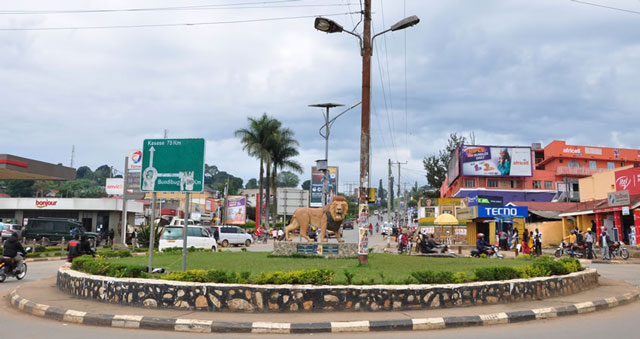
Kampala, Uganda | THE INDEPENDENT | The United Nations Agency in Uganda is worried that the newly created cities will increase the financing burden of the central government and affect the achievement of sustainable development goals.
The UN Capital Development Fund, UNCDF, which aims to make public and private finance work for the poor, says under the current situation, all the ten cities can hardly fund a reasonable part of their annual needs.
Operationalization of the cities came at a time when the country’s private and public resources experienced a sharp decline due to the onset of the Covid-19 pandemic.
Last year, the government approved the operationalization of 10 new cities, Arua, Fort Portal, Gulu, Hoima, Jinja, Lira, Masaka, Mbarara, Mbale and Soroti, while by the end of 2023, Entebbe, Moroto, Nakasongola, Kabale and Wakiso will also be fully-fledged cities.
According to statistics at the Local Government Finance Commission database, currently, the 10 cities can only raise cash enough to only construct two kilometres of tarmac roads, unless helped by either external or central government grants.
The Head of the UNCDF in Uganda, Dmitry Pozhidaev says that this is a reflection of what the financial situation is at the local government levels. He proposes that there is great unutilized potential for the local governments to raise more capital, but that these administrative units should be made what he calls the real actor of development.
This according to Dmitry, will involve focusing resources towards empowering the local governments to nurture and exploit local resources and on how to manage the revenues and expenditures.
The UNCDF has launched a program aimed at automating the revenue administration system for local governments, dubbed the Integrated Revenue Automation System (IRAS), following a year-long pilot in Fort Portal, Nansana and Gulu municipalities.
The system is now being rolled out to 18 local governments in northern Uganda under the Development Initiative for Northern Uganda program, in a joint initiative with the Ministry of Local Government.
The UN agency says much as the decentralization of government is the best way for balanced development, low capacity for local governments to raise finances locally defeats the cause because they heavily rely on the central government.
The Minister for Local Government Raphael Magyezi says that currently, the urban local governments can only raise 17% of their budgetary needs and they have to rely on the central government and other external sources to fund the gap.
The ratio is much less at the rural local governments. In a statement read for him by a member of the Local Government Finance Commission, Yunus Mugabe, Magyezi said in Fort Portal, the pilot led to a 26% rise in local revenue collections in a year.
The IRAS has been integrated with the Uganda Revenue Authority systems to enable the revenues collected electronically to be channelled through the URA bank accounts.
The government proposed this as part of the policy to the developers of the system to enhance effective administration of the revenues.
The system, apart from enhancing the safety of funds through automation, also reduces the cost of administration due to the reduced need for human resources.
UNCDF donated equipment worth more than US$ 165000 (597 Million Shillings), including more than 90 full sets of computers, 36 printers and 90 external drives, to the 18 districts where the program is going to first be implemented.
James Ogwal, the Principle Revenue Officer at the Commission says the IRAS enables the local governments to budget and collect revenue by way of mapping all revenue sources including taxable businesses.
*****
URN
 The Independent Uganda: You get the Truth we Pay the Price
The Independent Uganda: You get the Truth we Pay the Price



